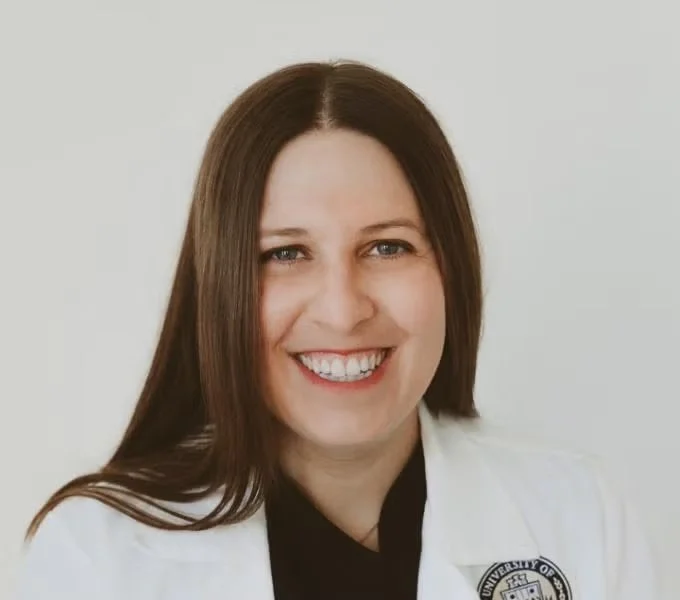
our team
Who We Are
The Post Cardiac Arrest Service (PCAS) is a multidisciplinary team dedicated to improving care and outcomes for patients who survive CPR.
A physician is on call to consult on post-cardiac arrest patients at any time during their recovery (minutes to years after CPR). Many physicians, nurses, investigators, and other stakeholders from many disciplines guide our protocols, best practices, and care of these patients.
Started in 2007 and based at UPMC Presbyterian Hospital, our service has grown each year. PCAS sees over 400 post-cardiac arrest patients each year. Patients treated by PCAS have the best short and long-term survival in the region.
-
MD, PhD, Professor, Vice-Chair, and Ronald D. Stewart Endowed Chair in Emergency Medicine Research
Clifton Callaway, MD, PhD is Professor, Vice-Chair, and Ronald D. Stewart Endowed Chair in Emergency Medicine Research at the University of Pittsburgh. His research efforts focus on post-cardiac arrest care, particularly improving brain recovery after cardiac arrest. The core of this research has been that post-arrest patients require a multidisciplinary, multiorgan, and personalized approach. He has helped lead several research networks designed to conduct clinical trials in acute care. Dr. Callaway has contributed to or co-authored advanced cardiac life support guidelines since 2008 as a member of the AHA Emergency Cardiovascular Care Committee and ILCOR Advanced Life Support Committee, particularly focusing on post-cardiac arrest recovery.
-
Patrick J. Coppler, PA-C is a resuscitation researcher and Certified Physician Assistant within the Department of Emergency Medicine at the University of Pittsburgh. His current research interests include investigation of clinical and electrographic characteristics of delayed emergence from post anoxic coma, optimal electroencephalographic monitoring strategies and antiseizure medication management for cardiac arrest related seizures as well as multimodal non-invasive monitoring techniques to optimize cerebral blood flow and neuronal metabolism after hypoxic-ischemic brain injury. His prior clinical experience includes completion of the multidisciplinary critical care advance practice provider residency as well as staff positions in the neurotrauma and neurovascular intensive care units at the University of Pittsburgh Presbyterian Hospital.
-
Associate Professor of Emergency Medicine, Director of the UPMC Post Cardiac Arrest Service, and Co-Director of the University of Pittsburgh Center for Cardiac Arrest Survival
Ankur A. Doshi, MD is an Associate Professor of Emergency Medicine, Director of the UPMC Post Cardiac Arrest Service, and Co-Director of the University of Pittsburgh Center for Cardiac Arrest Survival. Dr. Doshi is a clinician who has taken care of post arrest patients for the past 15 years and also a researcher and educator. His area of study includes community interventions for cardiac arrest and other life-threatening diseases. He is an undergraduate medical educator and mentor at the University who has developed unique longitudinal medical courses and intensive summer programs. He has received the Sheldon Alder Award for Innovation in Medical Education, the Donald S. Fraley Award for Outstanding Contribution as a Mentor for Future Physicians as well as Clerkship Preceptor of the Year and Small Group Facilitator of the Year Awards.
-
MD, FACEP, Assistant Professor of Emergency Medicine
Byron Drumheller, MD, FACEP, is an Assistant Professor of Emergency Medicine. Dr. Drumheller completed emergency medicine residency training at the University of Pennsylvania and subsequent surgical critical care and research fellowship training at the R Adams Cowley Shock Trauma Center at the University of Maryland. His expertise focuses on advanced hemodynamic and neurological monitoring techniques that can be used to individualize patient diagnosis and treatment. For intra-arrest management, he is studying the use of invasive blood pressure monitoring to guide CPR and cardiac arrest resuscitation. Additionally, he is an international expert on the use of Resuscitative Endovascular Balloon Occlusion of the Aorta (REBOA) for cardiac arrest. In post-arrest patients, his work focuses on invasive neuromonitoring technologies, such as jugular venous oximetry and brain tissue oxygen measurement, that can be used to characterize and treat subgroups of patients with particular disease pathophysiology.
-
MD, MS, Associate Professor of Emergency Medicine and Critical Care Medicine
Jonathan Elmer, MD, MS is an Associate Professor of Emergency Medicine, Critical Care Medicine and Neurology. He completed residency in emergency medicine at the Massachusetts General Hospital/Brigham and Women’s Hospital combined training program, then completed critical care medicine and neurocritical care fellowship training at UPMC. His research is focused on improving delivery of acute post-arrest care to improve patient outcomes. Specific areas of focus include optimizing systems of care; advancing the science of neurological prognostication and post-arrest risk stratification; and developing novel quantitative methods to analyze time series data.
-
MD, MS, MPH, Professor of Emergency Medicine, Medical Director of STAT MedEvac
Francis X. Guyette, MD, MS, MPH, is a Professor of Emergency Medicine and the Medical Director of STAT MedEvac. Dr. Guyette is an EM/EMS physician and founding member of the Post Cardiac Arrest Service. His expertise is in prehospital resuscitation, critical care transport and clinical trials development. He has authored over 175 scientific works on resuscitation and prehospital care. His research interests include improving systems of care and regionalization of cardiac arrest care.
-
MD, MS
Masashi Okubo, MD, MS is an emergency physician and clinical researcher. His primary research domain encompasses the study of cardiac arrest. Employing an epidemiologic approach, he utilizes large datasets to discern patterns and outcomes of cardiac arrest. His research sphere includes the examination of prehospital resuscitative interventions, performed by emergency medical services personnel. Dr. Okubo's research endeavors to determine the impact of these prehospital interventions on the patient's ultimate health outcomes. Moreover, Dr. Okubo is intrigued by the variations in cardiac arrest outcomes. These variations provide insights into why different patients experience divergent recovery trajectories post cardiac arrest.
-
DNP, CRNP
Cecelia Ratay, DNP, CRNP is a nurse practitioner and clinical researcher interested in the resuscitation and post-arrest care of cardiac arrest patients across the continuum as well as nursing care of patients with disorders of consciousness.
-
DNP, AGACNP-BC, CRNP
Kim Schatz DNP, AGACNP-BC, CRNP is a nurse practitioner who has spent many years working within Critical Care Medicine. She is interested in the continuum of care post-arrest patients experience.
-
MD, MS, Assistant Professor, Department of Neurology, Critical Care Medicine, and Emergency Medicine
Alexis Steinberg, MD, MS is an Assistant Professor, Department of Neurology, Critical Care Medicine, and Emergency Medicine. Dr. Steinberg is board-certified in neurology and neurocritical care and attends in a mixed neurologic intensive care unit and on the University of Pittsburgh Post-Cardiac Arrest Service. Dr. Steinberg is focused on improving outcomes of patients in coma, specifically patients with hypoxic ischemic brain injury. Her work has confirmed that the process of neuroprognostication is common, imprecise, variable and may result in many preventable deaths. Therefore, she studies physicians' cognitive approach to neuroprognostication after acute injury with a focus on anoxic brain injury. Dr. Steinberg's goal is to develop interventions to improve prognostication, which will prevent both the inappropriate withdrawal of life-sustaining therapies in recoverable cases and futile care in cases where recovery is impossible.
-
MD, MS, MPH, Assistant Professor of Department of Emergency Medicine
Alexandra Weissman, MD, MS, MPH is an Assistant Professor with the Department of Emergency Medicine and a member of the Post Arrest Service. Her research focuses on lung injury and infections after cardiac arrest.
-
Nicholas Case is the Clinical Research Coordinator for the Post-Cardiac Arrest Service, a Critical Care Flight Paramedic with STAT MedEvac, and a Graduate Student in the Department of Biostatistics and Health Data Science at the University of Pittsburgh. His methodological research focuses on applying causal inference methods to the complex data generated in emergency and critical care medicine. His applied research leverages neuroimaging and physiologic data to characterize differences in brain injury and outcomes following cardiac arrest.
-
Sara DiFiore-Sprouse, MSL, is the Research Project Manager with the Post-Cardiac Arrest Service at the University of Pittsburgh. She has worked collaboratively for 15 years with the Department of Emergency Medicine, and over a decade of experience managing operations of multiple NIH-funded clinical trials, including regulatory approvals and compliance, protocol adherence, data entry, and reporting. She is the Manager for the Pittsburgh Hub of the SIREN research network. She has developed and executed community consultation and public disclosure plans for a number of trials operating under and Exception from Informed Consent (EFIC). She has partnered with numerous investigators and institutions both nationally and internationally to conduct complex interventional trials.
-
Tammy Makoul, LSW, is a licensed social worker for the Post Cardiac Arrest Service and the Center for Cardiac Arrest at UPMC Presby. She teaches at the University of Pittsburgh for multiple schools specifically on the topics of grief and loss as well as caregiving. She has many years of work with hospice care and also a neurodegenerative condition called Huntington's Disease. Tammy has facilitated various support groups and clinical care in her social work roles. She believes in the power of building relationships and providing support and resources for cardiac arrest survivorship.
-
Jonathan Tam, MD, MS is an Assistant Professor of Critical Care Medicine and Emergency Medicine at the University of Pittsburgh. Clinically, he is a practicing intensivist and emergency physician, and serves as an attending on the University’s Post-Cardiac Arrest Service. His research interests broadly include post-cardiac arrest processes of care and outcomes, with a focus on how premorbid frailty and resilience influence recovery, the delivery of care, and decisions to withdraw life-sustaining therapies.















